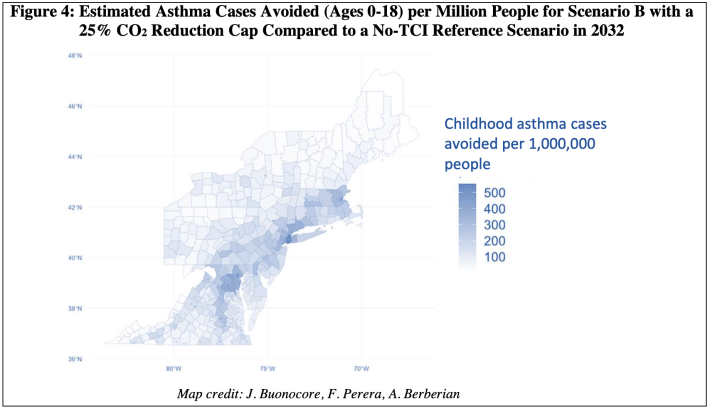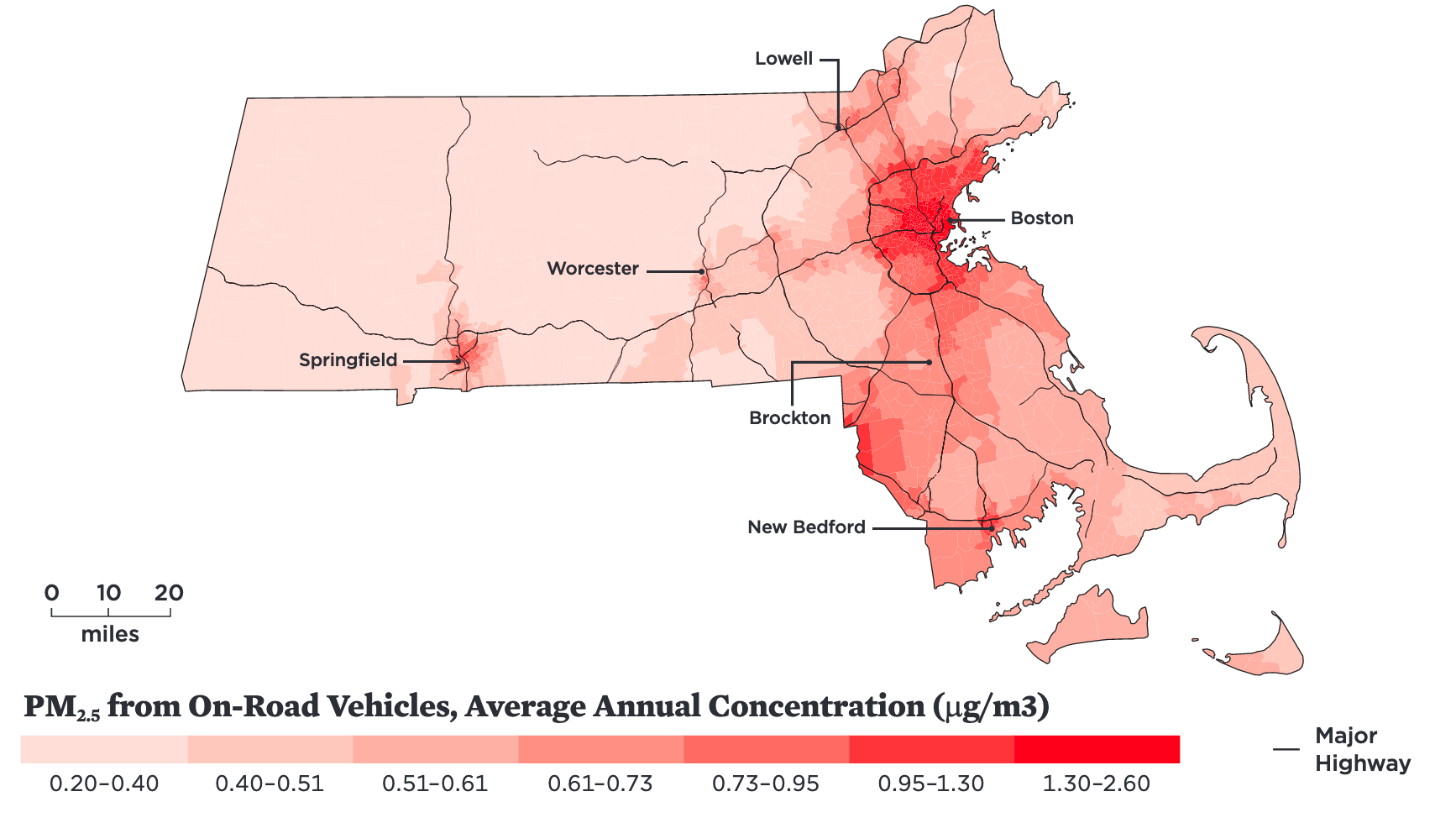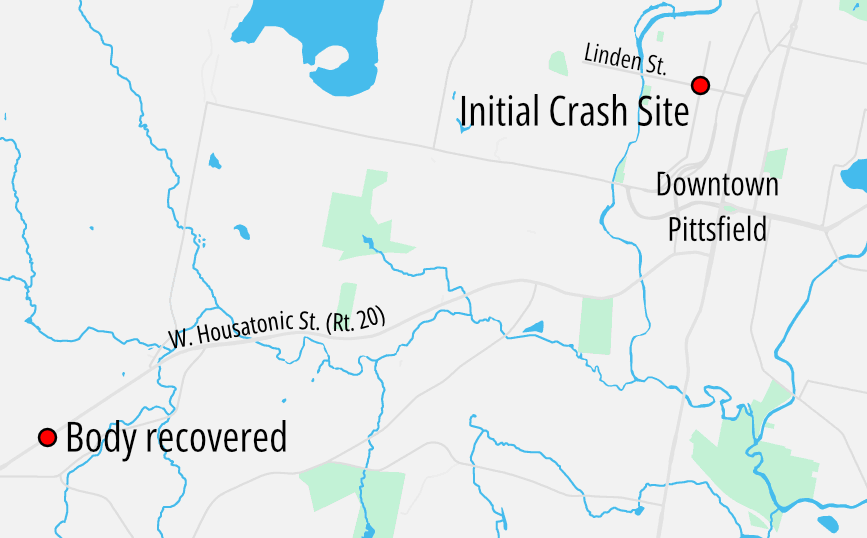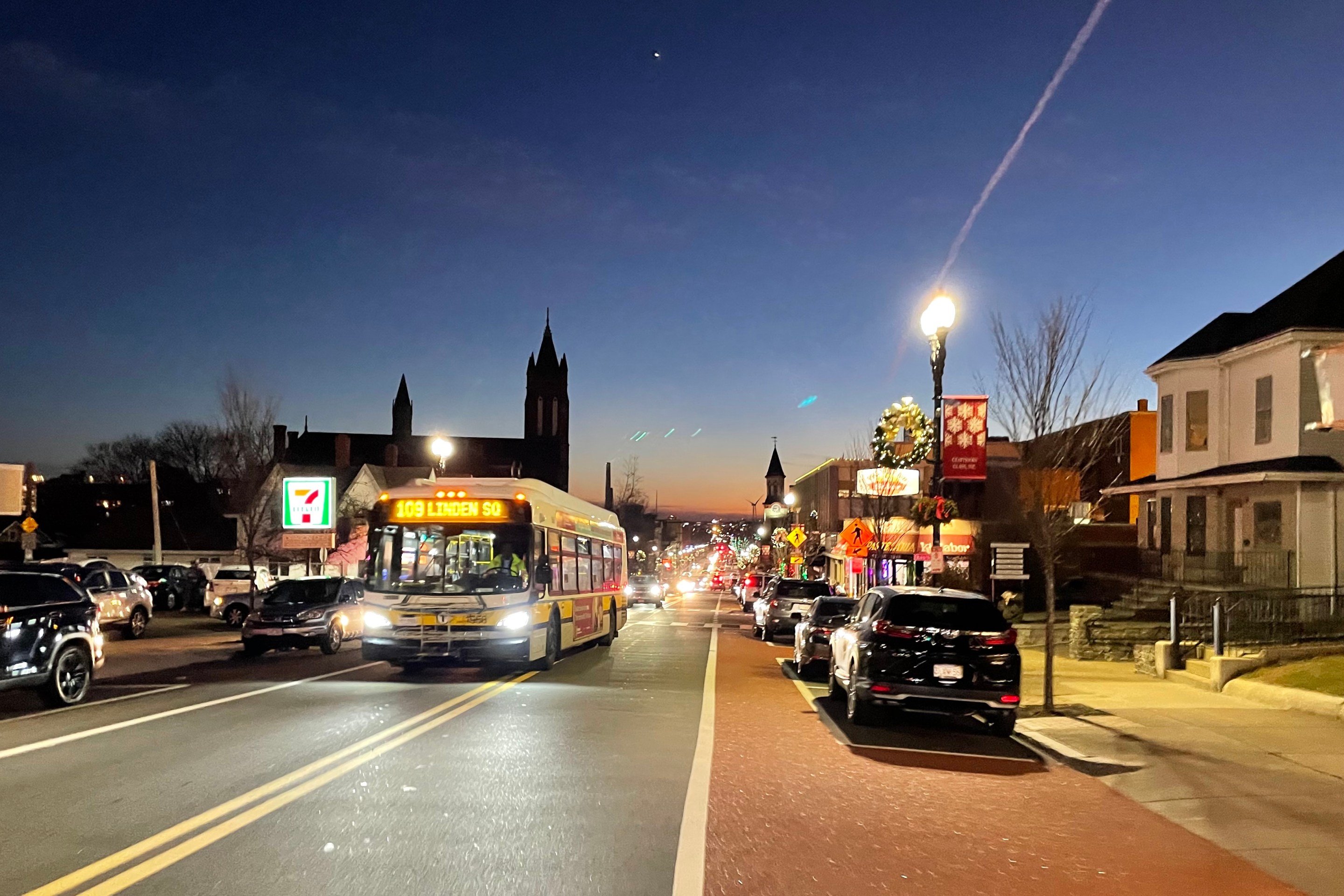A regional "cap and trade" scheme to reduce pollution from gasoline and diesel fuels could save over 1,000 lives with cleaner air and healthier lifestyles, particularly among Black and Hispanic households living in historically under-invested communities, according to preliminary research from a multi-university public health research collaborative.
The Transportation, Equity, Climate and Health (TRECH) Project, a multi-university research initiative that includes Harvard's T.H. Chan School of Public Health and Boston University, among others, recently released a preliminary public health analysis of the Transportation and Climate Initiative (TCI), a multi-state effort to reduce emissions from fossil-fueled vehicles.
The study is still under review, but the research team estimates that a more-aggressive TCI policy, by the time it's fully implemented in 2032, could help forestall as many as 1,100 pollution-related deaths, prevent 4,700 childhood asthma cases, and provide $11.1 billion in annual benefits from better public health.

As we've reported previously, TCI is modeled on the "cap and trade" concept of the Regional Greenhouse Gas Initiative (RGGI), which has been regulating emissions from the region’s electric power plants since 2008. By making fossil-fueled power plants pay for the emissions they generate, RGGI has encouraged utilities to shut down older coal-burning plants while also generating billions in new public revenue that states have used to fund energy efficiency programs and to lower residents’ electric bills.
In addition to capping emissions from gasoline and diesel fuels, TCI is expected to generate a significant source of revenue once the program starts requiring wholesale fuel companies to buy permits for the pollution they generate, possibly as soon as 2022.
If TCI charges gasoline and diesel fuel suppliers $15 per ton of pollution – a price similar to what California’s most recent cap-and-trade auctions yielded – then Massachusetts could receive roughly $480 million a year from TCI.
TRECH researchers found that the health benefits of TCI depend significantly on what states decide to do with that money. Their analysis compared various policy scenarios, including one where more of TCI's revenues were directed to fund transit, bike, and pedestrian projects, and one where the majority of TCI funding goes to subsidies for electric vehicles.
They found that scenarios that devoted more funds to transit and active transportation generated significantly greater public health benefits, particularly by encouraging more physical activity with better bike and pedestrian infrastructure.
The transit-focused scenario "also does the most to reduce inequalities in air pollution exposure by race/ethnicity, has the smallest difference between rural and urban benefits, and achieves the largest CO2 emission reductions from on-road sources," according to the research team's report.
Chris Dempsey, who has been advocating for Massachusetts to adopt TCI in his role as Director of Transportation for Massachusetts, says that the study demonstrates how TCI helps solve multiple problems beyond just reducing greenhouse gas emissions.
"Transportation is the largest source of air pollution in Massachusetts, causing increased levels of asthma and other respiratory disease," wrote Dempsey in an emailed statement. "This study shows that TCI holds great promise for reducing that pollution in every county of the state, while also enabling investments to provide residents with more options for getting around safely and sustainably. The findings should be an encouraging sign that the Baker Administration is on the right track by taking a bi-partisan and regional approach to addressing transportation pollution."
This story was updated at 10:30 a.m. on Friday, Oct. 16 to clarify that the estimated public health benefits of TCI could be $11.1 billion annually by 2032; a previous version cited the $11.1 billion figure without specifying a timeframe.






